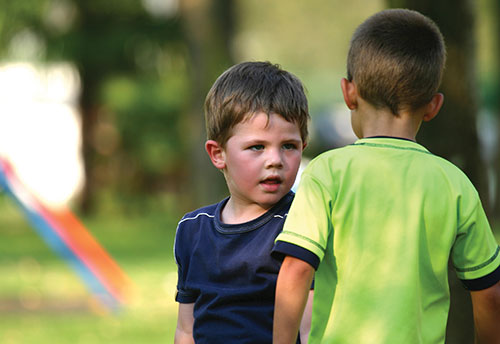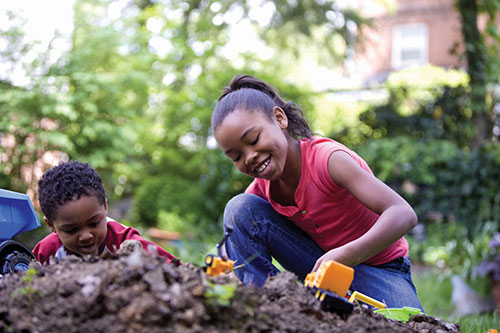Helping Your Child Settle Arguments and Disputes
 Children fight and argue. Some do it more often or more subtly, but most children, at one time or another, will attempt to exert their influence over others and an argument will ensue.
Children fight and argue. Some do it more often or more subtly, but most children, at one time or another, will attempt to exert their influence over others and an argument will ensue.
Disagreements are a normal part of behavior and can show that your child is an independent thinker and a self-motivated person – both qualities you want your child to have! However, when these disagreements escalate into fighting, the result can be troubling for everyone involved.
As a parent, one of your goals is to teach your child appropriate conflict-resolution skills. These skills will be very valuable as he or she negotiates life in the context of a social world. Therefore, every argument your child is involved in can be seen as an opportunity for him or her to practice conflict resolution.
Here are some tips to help your child settle arguments and disputes in a constructive manner and minimize arguments and fighting.
-
Model appropriate conflict-resolution skills. One of the biggest ways children learn how to handle social situations is by observing the adults in their lives. If a child sees his father yell and become aggressive when handling a conflict, then the child will learn that yelling and being aggressive are the normal ways to handle frustration. On the other hand, if a father models appropriate skills when addressing a conflict, the child will learn and be more likely to imitate that behavior.
 Modeling appropriate behavior is especially important when you have to stop your children from fighting. It doesn't make sense for you to get emotional and scream at your child if you are trying to teach him or her how to remain calm and resolve an issue without fighting! So take a deep breath and remember these situations are teaching opportunities for you and learning opportunities for your child.
Modeling appropriate behavior is especially important when you have to stop your children from fighting. It doesn't make sense for you to get emotional and scream at your child if you are trying to teach him or her how to remain calm and resolve an issue without fighting! So take a deep breath and remember these situations are teaching opportunities for you and learning opportunities for your child.
-
Communicate your expectations clearly. Let your child know at an early age that you will not tolerate arguing and fighting.
-
Teach relaxation skills to help your child calm down when he or she feels like getting angry. When a person reacts emotionally rather than calmly and thoughtfully, regretful behaviors are often the result. By learning to take some deep breaths or slowly counting to 10 in order to head off an explosion, children are more likely to use appropriate behaviors instead of arguing and fighting.
-
Discuss and practice ways to resolve disputes productively. For example, if your child will not share a toy with another child, discuss how they can take turns. You also can role-play various options for solving a conflict, such as using the skills of compromising or asking for help.
-
Avoid always trying to be the judge, arbitrator or referee. If your children fight a lot, you will drive yourself crazy trying to determine who started every fight and why it happened. Instead of taking sides, it is more helpful to give consequences to everyone involved (it takes at least two to fight) and then have them work on appropriate negotiation skills.
-
Give positive feedback when you see your child attempting to use a new skill. Let your child know you are watching and that you appreciate the effort he or she is making to try to avoid arguments and fights.
-
Give logical consequences when your child gets into a fight. Make sure he or she knows that fighting will automatically produce certain consequences, and then follow through with giving them, when necessary. For example, if your children are fighting over a video game, the game gets turned off.
Additional Resources
Help! There's a Toddler in the House! by Thomas M. Reimers, Ph.D.
I Brake For Meltdowns: How To Handle The Most Exasperating Behavior Of Your 2- To 5-Year-Old by Michelle Nicholasen and Barbara O'Neal
Parenting the Strong-Willed Child: The Clinically Proven Five-Week Program for Parents of Two- to Six-Year-Olds by Rex Forehand and Nicholas Long
Download Printable Version
Kid Tips;Communication Skills
